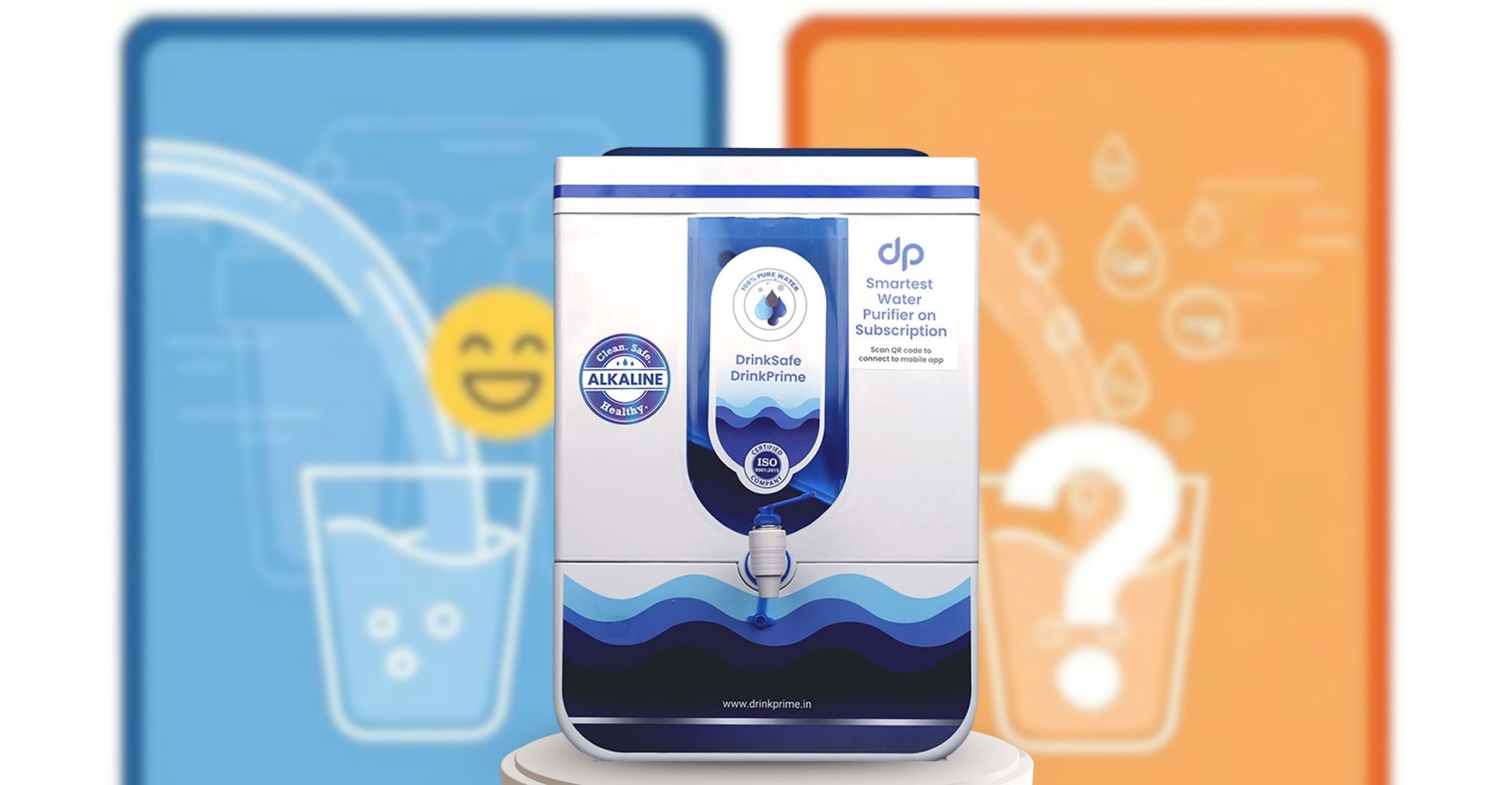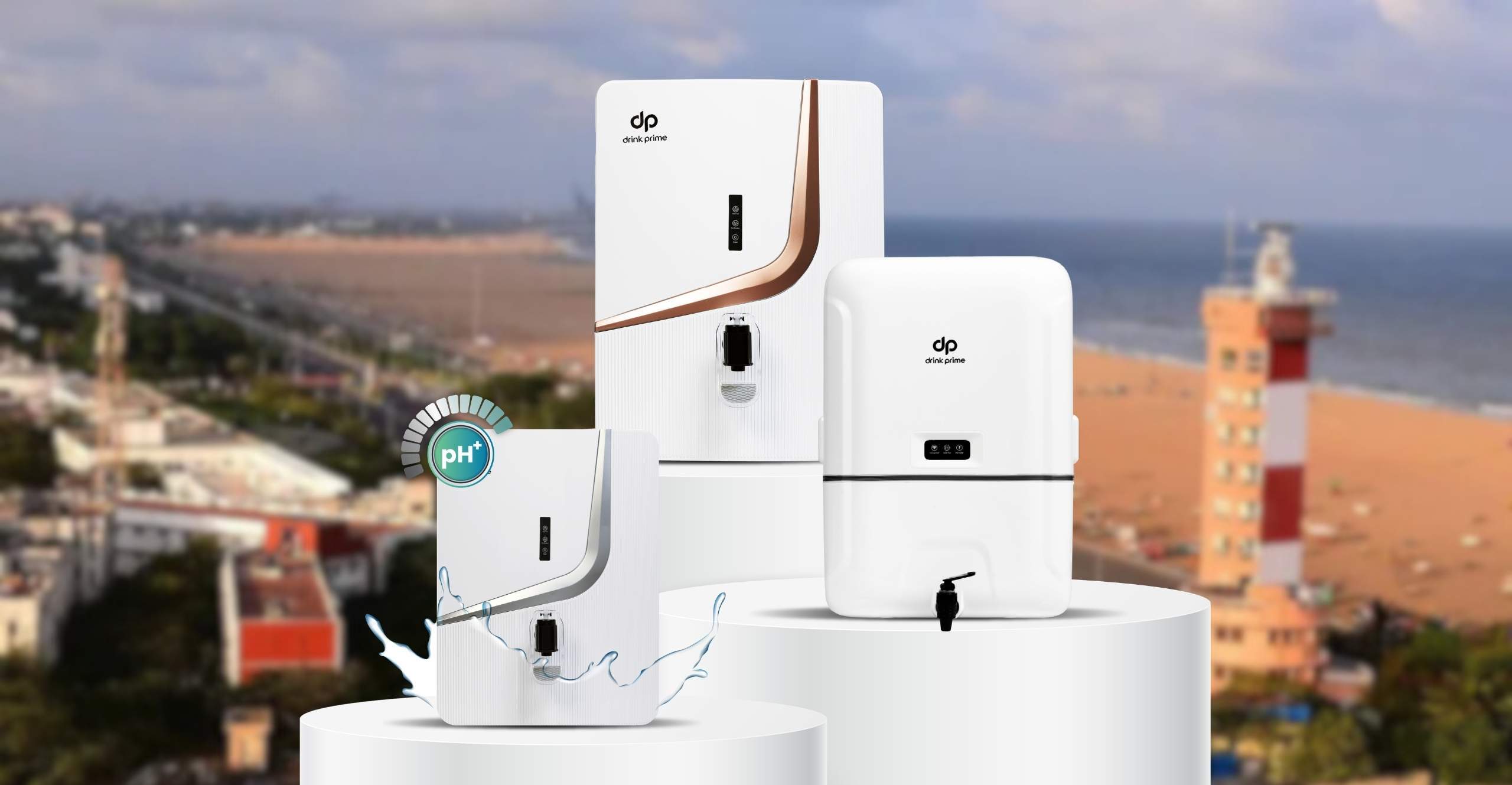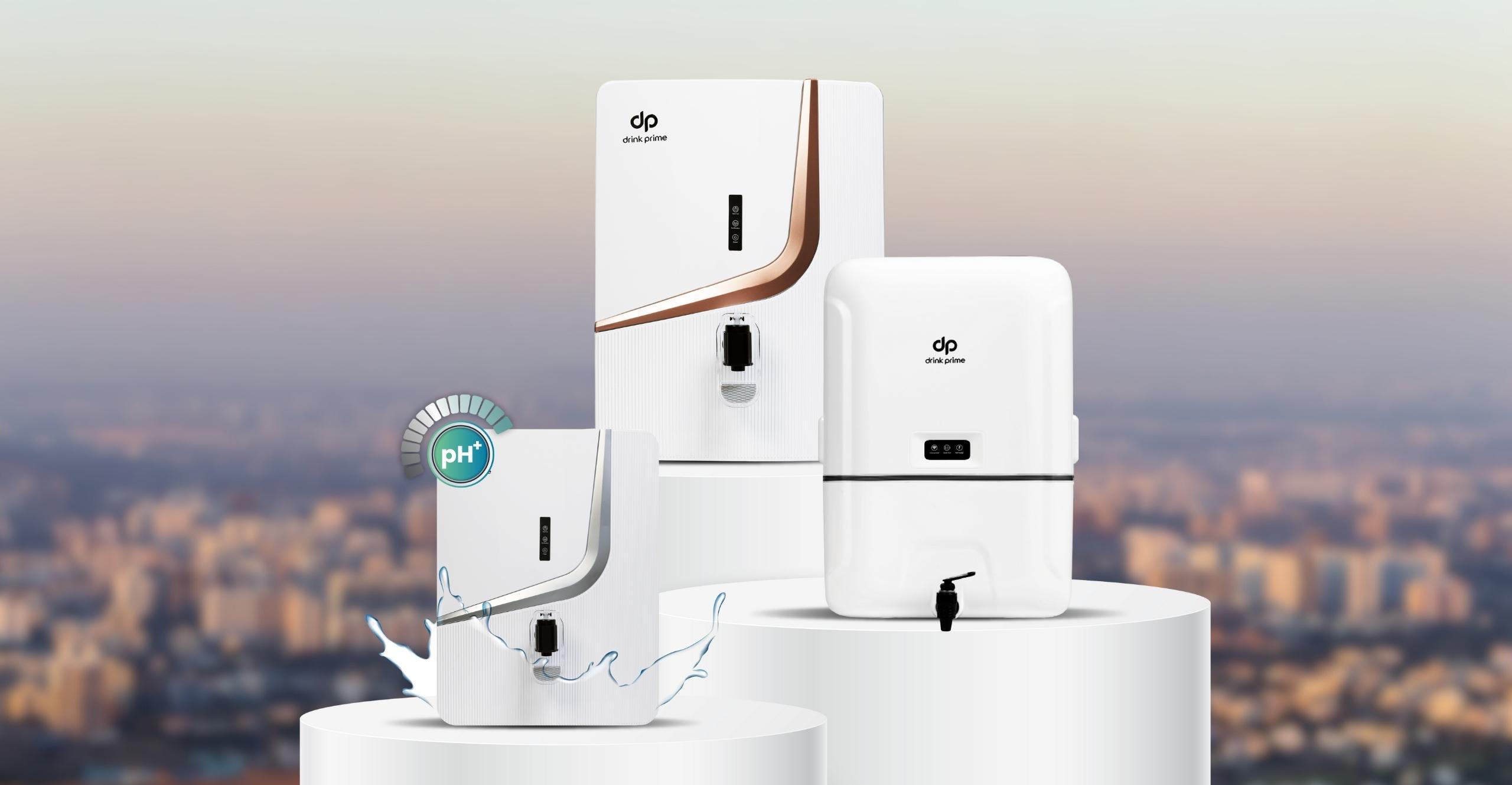Whether you use water for your home or commercial purposes, getting access to safe water, which is free from contaminants, has become crucial. In most parts of the country, the water which is available through civic sources, is unfit for consumption and basic needs.
Due to the indiscriminate use of chemicals and pesticides, the water has become heavily contaminated and contains a plethora of pathogens like bacteria and viruses, along with traces of heavy metals like arsenic, lead, etc. This, if consumed, can cause a host of illnesses in the long term.
To combat this, the market today is filled with a wide variety of purifiers, filters, softeners, etc. which make the source water pure and free of contaminants. One such method of water treatment is an ion exchange water filter, which softens water.
In this blog, we discuss how ion exchange filters work, the types of ion exchange filters, and their advantages and disadvantages. Let’s dive in!
Related Reading: Common Water Contaminants and How Purifiers Remove them
What do you mean by an ion exchange water filter?
The impurities found in water affect its taste and smell while making it unsafe for consumption. Currently, there are many ways in which water quality can be improved and one such method is an ion exchange water filter. It involves a chemical process that removes certain impurities and minerals from the water, thereby softening it.
A quick chemistry refresher will throw more light on the concept of ion water filters. Atoms are made up of electrons, protons, and neutrons which have positive, negative, and neutral charges respectively. Many atoms link together to form molecules or compounds through electronic bonding. An atom or molecule that has an unequal number of protons or electrons, resulting in a positive or negative charge is known as an ion.
Minerals such as calcium, magnesium potassium, etc. become ions when they get dissolved in water. Their presence affects the taste, odor, and hardness of water.
Get 7 Days Risk Free Trial
How does an ion exchange water filter work?
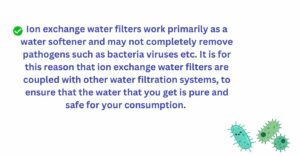
Softens water
An ion exchange water filter softens your source water, it does not filter or purify it. Electrically charged solids are used to remove contaminant ions from the water. This works even if the contaminants are in liquid form.
Removes calcium and magnesium
Hard water which is caused by the presence of calcium and magnesium, causes a host of skin and hair problems as well as limescale build up on appliances and inability to lather soap.
Ion exchange water treatment gets rid of this calcium and magnesium, by using resins, a small porous bead-like material made of synthetic or natural polymers. This is fortified with specific chemical groups which exchange or draw certain ions, based on their charge.
Use of resins
Ion exchange systems use three types of resins. Cationic resins can be of weak acid cation or strong acid cation. They can remove contaminants like iron, calcium, chromium, magnesium, sodium, etc. They are mostly useful in water softening, demineralization, and alkalization.
The systems that use anionic resins can contain either a strong base anion, which can be useful for demineralization, or a weak base anion which can help with acid absorption applications. Anionic resins can remove arsenic, uranium, carbonates, cyanide chlorides, etc. The third type, which is specialty resins, is mostly used in industrial applications. They are generally more expensive.
Recharging of resins
Resins need to be recharged periodically. When the ion exchange process is not functioning properly, resins need to be recharged with sulphuric acid, sodium chloride, sodium hydroxide, or hydrochloric acid.
What are the different types of ion exchange filters?
There are different types of ion exchange water filters, each designed for a specific need or application and to suit different environments.
Countertop filters
As the name suggests, they sit snugly on your countertop. They are best suited for small apartments or families and especially rental houses as they do not require any drilling or plumbing.
Under sink filters
These filters are installed under your sink area and connected to your taps. They filter larger quantities of water and free up your countertop space.
Stand-alone filters
They are designed for larger households or for commercial purposes. They are most often used in tandem with other water treatments.
Inline filters
These filters are connected directly to your plumbing system and can be used for whole-house filtration and even for special uses like connecting to your fridge or ice maker.
Like with most systems, ion exchange water treatments also come with their own set of advantages and disadvantages.
Advantages of Ion exchange water treatment
1. Easy to set up
Ion exchange water filters are relatively easy to install and fits in your budget too.
2. Improves taste
It improves the taste and odor of water, which is a bonus.
3. Reduces hardness of water
Ion exchange water filters remove the hardness of water and dissolve heavy metals from water.
4. Easy installation
The installation process is simple for these ion exchange water filters, and it is relatively easy to maintain them as well.
Disadvantages of Ion exchange water treatment
1. Does not remove microorganisms
Ion exchange water filters cannot remove pathogens like viruses or bacteria particles etc.
2. Expensive
Ion exchange water filters mostly have long-term operating costs which can prove to be detrimental.
3. Use of chemicals
These filters need to use chemicals like salt for water softening.
4. Wastewater generation
Ion exchange water filters may generate a lot of waste water which requires disposal.
5. Additional add-ons required
These filters require a lot of extra add-ons, for proper functioning. A discharge line, to rinse off the calcium and magnesium from the resin beads, an electrical source to provide power for the regeneration process, and periodic refilling of the brine solution, to ensure that the water softener functions well.
Get 7 Days Risk Free Trial
Conclusion
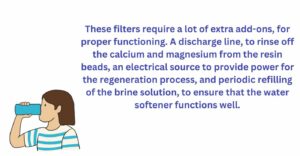
So, is water from an ion exchange water filter completely safe for you to drink? Ion exchange water filters are used to produce bottled water and home-based water treatment solutions. It is important for you to understand that ion exchange water filters work primarily as a water softener and may not completely remove pathogens such as bacteria viruses etc.
It is for this reason that ion exchange water filters are coupled with other water filtration systems, to ensure that the water that you get is pure and safe for your consumption. It is essential that you get your source water tested, to get an idea of the contaminants that you are dealing with, before zeroing in on a water filtration and purification system.

